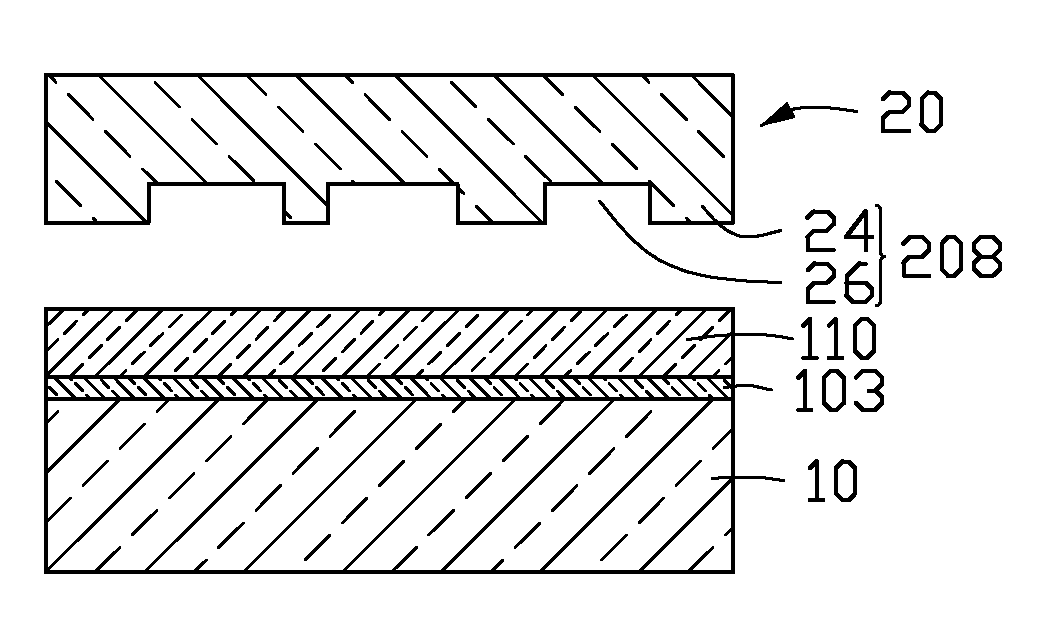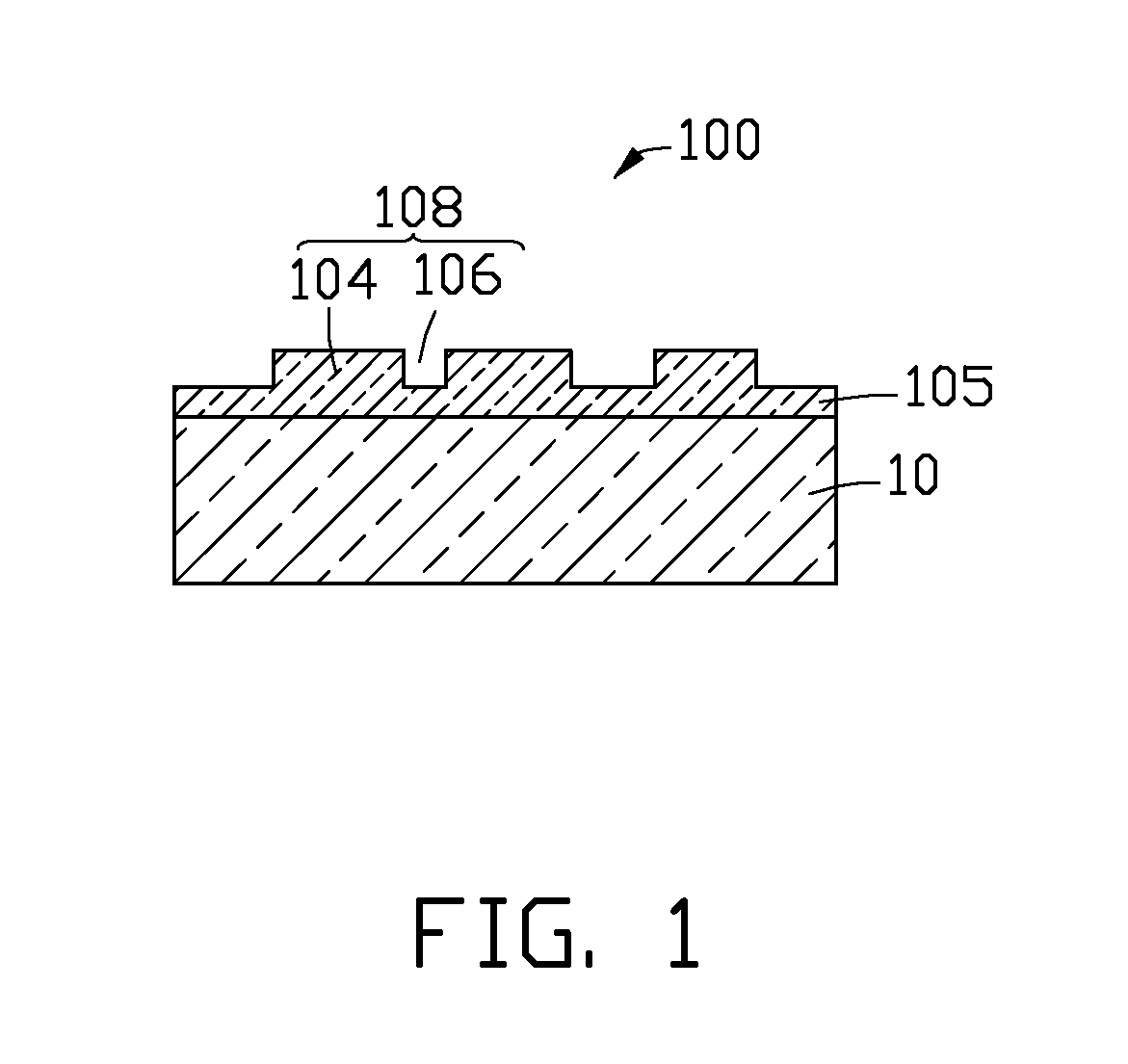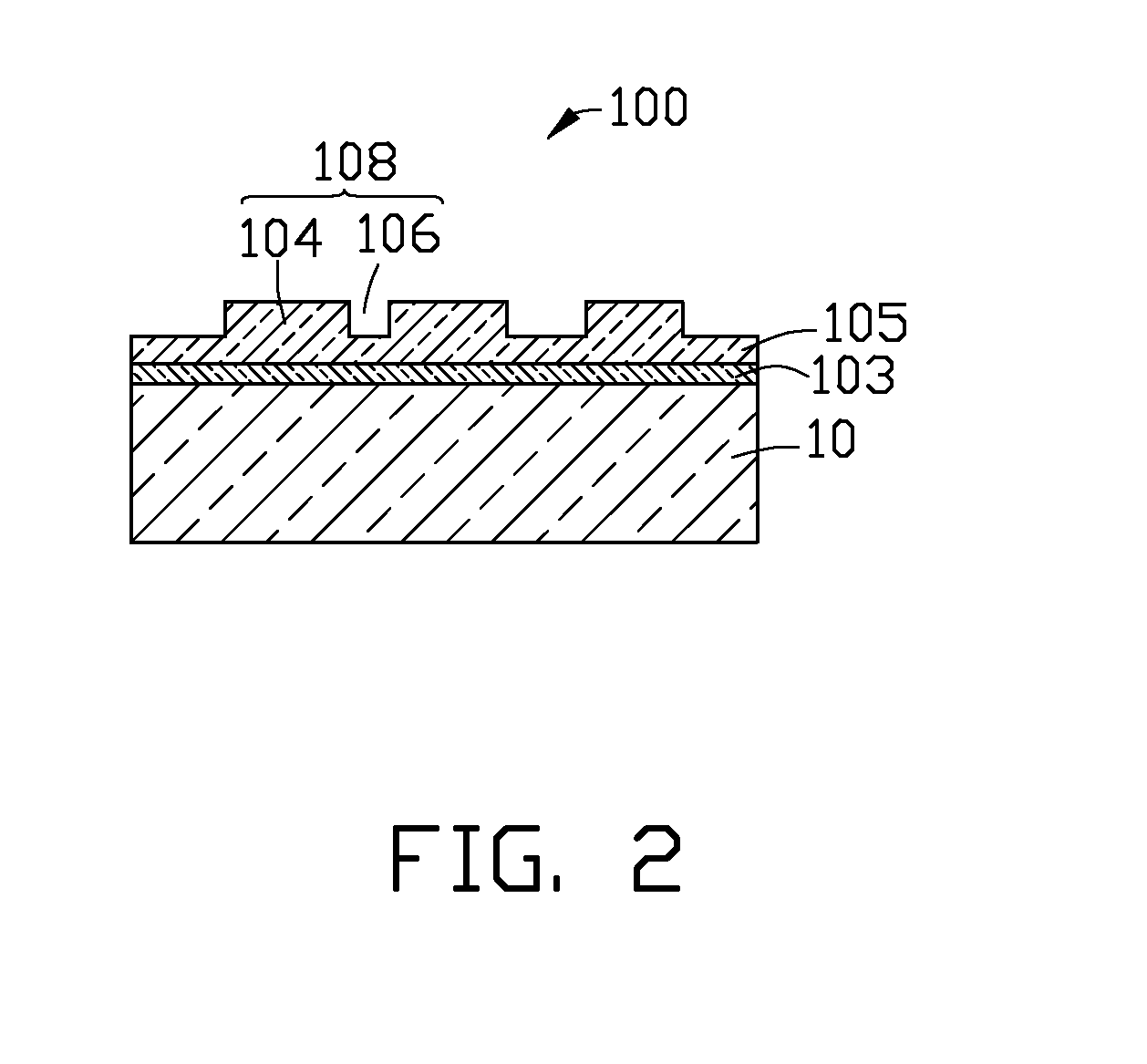Nanoimprint resist, nanoimprint mold and nanoimprint lithography
a technology of nanoimprinting and resist, which is applied in the direction of photomechanical equipment, instruments, manufacturing tools, etc., can solve the problems of deformation and distortion of the resident imprinting nanostructure, and achieve the effect of reducing the number of imprinting nanostructures
- Summary
- Abstract
- Description
- Claims
- Application Information
AI Technical Summary
Benefits of technology
Problems solved by technology
Method used
Image
Examples
Embodiment Construction
[0018]The disclosure is illustrated by way of example and not by way of limitation in the figures of the accompanying drawings in which like references indicate similar elements. It should be noted that references to “an” or “one” embodiment in this disclosure are not necessarily to the same embodiment, and such references mean at least one.
Nanoimprint Resist
[0019]A nanoimprint resist of one embodiment of includes a hyperbranched polyurethane oligomer (HP), a perfluoropolyether (PFPE), a methylmethacrylate (MMA), and a diluent solvent. In the nanoimprint resist, the weight percent (wt %) of the HP is in a range from about 50 wt % to about 60 wt %. The wt % of the PFPE is in a range from about 3 wt % to about 5 wt %. The wt % of the MMA is in a range from about 5 wt % to about 10 wt %. The wt % of the diluents solvent is in a range from about 25 wt % to about 35 wt %.
[0020]The chemical structure of the PFPE is
wherein m:n is in a range from about 0.6 to about 1.
[0021]If the nanoimprin...
PUM
| Property | Measurement | Unit |
|---|---|---|
| weight percent | aaaaa | aaaaa |
| weight percent | aaaaa | aaaaa |
| weight percent | aaaaa | aaaaa |
Abstract
Description
Claims
Application Information
 Login to View More
Login to View More - R&D
- Intellectual Property
- Life Sciences
- Materials
- Tech Scout
- Unparalleled Data Quality
- Higher Quality Content
- 60% Fewer Hallucinations
Browse by: Latest US Patents, China's latest patents, Technical Efficacy Thesaurus, Application Domain, Technology Topic, Popular Technical Reports.
© 2025 PatSnap. All rights reserved.Legal|Privacy policy|Modern Slavery Act Transparency Statement|Sitemap|About US| Contact US: help@patsnap.com



